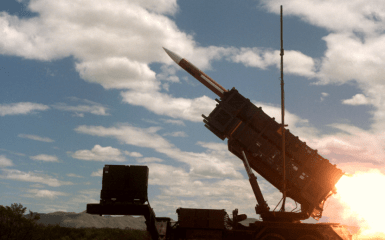The increase in air defense capabilities by the Russians in Crimea will make them vulnerable to strikes by the Armed Forces.
Points of attention
- Constant strikes by the Armed Forces of Ukraine on Russian military facilities force Russian troops to deploy additional anti-aircraft defences to protect Crimea.
- The analysis shows that Ukrainian forces are successfully using ATACMS missiles to neutralise air defence in Crimea, causing damage to Russian forces.
- The strengthening of Russian air defence on the peninsula may lead to Ukraine gaining an advantage in the long term in the destruction of anti-aircraft systems and the use of manned aviation.
AFU strikes against Russian air defence make Crimea unusable for the occupiers
It is noted that the constant strikes of the Armed Forces of Ukraine on Russian military facilities in Crimea force the Russian military to transfer additional air defence equipment to the peninsula to protect existing bases and logistics infrastructure.
The report recalled the words of the chief of the Defence iNtelligence of Ukraine (DIU), Kyrylo Budanov, that as part of efforts to strengthen the Russian "umbrella" of air defence over Crimea, Russian troops deployed the S-500 system on the peninsula, which, in fact, is modernised version of the S-300 system. Budanov described this system as "experimental" and added that Russian troops had not used it in combat before.
On June 12, Forbes reported that after several successful strikes by the Armed Forces of Ukraine on Russian installations, the Belbek airfield in Crimea is becoming an "exhaustion trap" for Russian air defence. The publication said that the Air Force destroyed elements of four or five S-400 batteries during recent strikes. At the same time, it was clarified there that Russia has more than 50 S-400 batteries.
One of the users of the social network X (formerly Twitter), referring to satellite images, noted that Russian forces had placed 17 barges near the bridge over the Kerch Strait, which connects the occupied Crimea with the Krasnodar Territory.
ISW analysts are convinced that the Russians probably intend to use these barges to protect against strikes by Ukrainian naval drones on the bridge — earlier, the Russian military installed eight barges on the southern side of the bridge for similar reasons.
Ukraine's current efforts to strengthen the Russian air defense umbrella in Crimea could result in more Russian air defense assets being deployed to the peninsula, leaving it vulnerable to further strikes by the Armed Forces, the ISW report said.
The Institute assumes that the Defense Forces of Ukraine are conducting an organized effort to degrade Russian air defenses, which may allow the Armed Forces to more effectively use manned aircraft (in particular, F-16 fighters) in the long term.
What is known about the destruction of the S-400 air defence system by the Ukrainian military in Crimea with ATACMS missiles
According to Forbes journalists, Ukraine actively uses long-range American ATACMS missiles to defeat the air defence of the criminal army of the Russian Federation on the territory of occupied Crimea.
In particular, in mid-May, the Ukrainian military struck a powerful blow, using 10 ATACMS missiles, at the Russian Belbek base near Sevastopol.
As a result of the impact, the radar and two launchers of the S-400 anti-aircraft battery were destroyed.
In addition, rockets damaged four military aircraft at the nearby military airfield.
After that, the occupation army of the Russian Federation quickly replaced the destroyed S-400. However, the Ukrainian military again hit the S-400 battery in Belbek.
The same M39A1 ATACMS probably also hit two other air defense batteries nearby: another S-400 and a less long-range S-300.
During the strike, at least 10 ATACMS missiles were used, and the Russian air defense system was unable to intercept any of them, representatives of the Center for Defence Strategies note.
Two radars were destroyed — one each from the S-300 and S-400 batteries. Regarding the third radar, the information was clarified.



